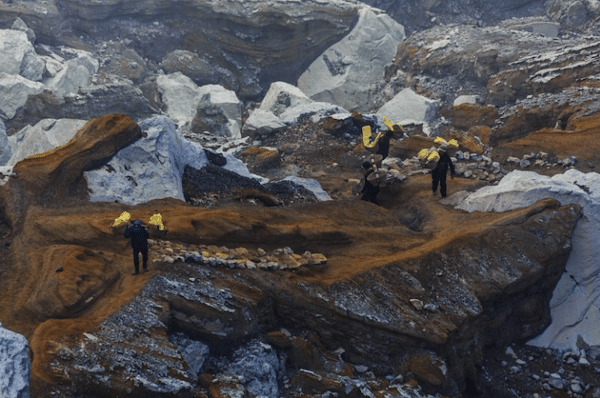Canada has long undermined efforts by impoverished countries to draw greater benefits from their commodities. Ottawa’s opposition to Indonesia’s move to add value to its nickel and rejection of its call for a producers’ partnership is a recent example.
Canada is a third-party supporter of a European Union-led suit against Indonesia at the World Trade Organization (WTO). They challenged Jakarta’s restriction on exports of unprocessed nickel and bauxite. Indonesia is appealing a WTO ruling that found its measures to be inconsistent with the body’s prohibition of export restrictions and bans.
Irrespective of WTO rules, the world’s largest nickel producer has generated huge benefits from the move. In short order the value-added benefits Indonesia garnered from the commodity rose 20-fold from US$1.1 billion to $20.8 billion.
Last year Indonesia raised a nickel producers’ partnership with Ottawa. As the world’s sixth-biggest producer, Canada could benefit from stabilizing and boosting the price of the commodity. But Ottawa rejected the proposal out of hand. “We are not looking at that particular model in the way that they have proposed,” Mary Ng, Minister of International Trade, Export Promotion, Small Business and Economic Development, told the Financial Post in a 2022 article headlined “Global nickel cartel off the table as Canada’s trade minister rebuffs Indonesia’s approach.”
Canada could benefit from higher nickel prices, but it isn’t interested in even exploring the matter due to the country’s position towards the apex of global capitalism and extractivism. Historically, this country has supported wealthy nations at the WTO, the International Monetary Fund (IMF), and similar forums while repeatedly opposing the formation of producers’ agreements designed to help poorer, commodity-dependent nations reverse the deeply unequal terms of global trade.
In the 1970s Canada resisted a producers’ organization for iron put forward by poorer producers and helped block a copper agreement supported by the Global South at the Integrated Program for Commodities. Ottawa also opposed the International Bauxite Agreement. In a similar vein, Canada was broadly hostile to the International Coffee Agreement and a bid by poorer countries for a better deal in sugar negotiations.
In criticizing “neocolonialism,” Ugandan President Yoweri Museveni recently noted that “the global business for coffee is worth $460 billion… But of those $460 billion the coffee producing countries of the whole world share only $25 billion and Africa shares only $2.4 billion out of $460 billion.” Starbucks alone had over $32 billion in revenue last year.
Ottawa has prioritized low-cost raw material imports over social justice and, as the global mining powerhouse, is hostile to “resource nationalism.” Successive governments has promoted and greatly benefited from IMF structural adjustment programs that privatized state resource firms and liberalized resource sectors. Producers organizations worry capitalists as they often lead to greater public ownership of resources (the best-known example of a producers’ cartel is OPEC, which is dominated by nationalized oil firms).
Benefiting from liberalized resource regimes, Canadian companies have extracted nickel in Guatemala, the Dominican Republic, Madagascar and elsewhere. Halfway through the last century the Sudbury based International Nickel Company (Inco) controlled nearly 90 percent of nickel production outside the communist bloc. In Indonesia, Inco greatly benefited from the pro-foreign investor policies General Suharto adopted after his shockingly brutal coup. To prevent the spread of leftism and nationalist economic policies in Asia, Canada supported the overthrow of Indonesia’s independence leader Sukarno in 1965 and the subsequent murder of at least half a million suspected supporters. Suharto would go on to rule the country for more than three decades.
Ottawa assisted Inco’s operations in Indonesia even though its mine on the island of Sulawesi displaced an indigenous community. Inco’s interests in Indonesia were one reason Ottawa continued to ally with Suharto in the 1990s despite growing opposition to his occupation and genocide in East Timor.
Coups, colonialism, invasions, and various forms of political subterfuge are important elements in explaining the unequal terms of global exchange. Reducing global inequities requires economic interventions irrespective of “free-market” ideology or WTO rules. It is unsurprising that Canadian capital and its enabler in Ottawa are hostile to measures that chip away at inequities they benefit from.

